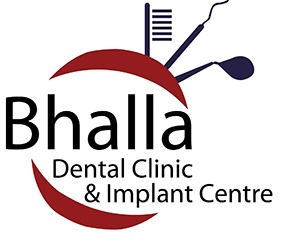What are Dental Implants?
Dental Implants Surgery – the most precious gift to humankind from modern dentistry; natural-like teeth look and functions! “They are really the next best thing to your natural teeth” – People of all ages have huge benefits from them! In Teeth implants, the restorative prostheses are usually the titanium fixtures that are screwed into jawbone, mainly working as an anchor, holding a tooth/a set of teeth on it. Following this, they will then hold the crown, bridge or denture a very way that your tooth root would typically grip the natural teeth. We can indeed define them being highly successful surgery with affordable dental implants India. They are a reasonable alternative treatment to dental bridges and removable partial or full dentures; truly, a permanent dental solution! Dental implants India are simply the best. The prices of dental implants Ahmedabad are highly competitive with uncompromised quality for patients coming from over the world.
Major Benefits of Dental Implants India Surgery
 Eat Better Superb biting force similar to natural teeth – is what you would definitely get with dental implants surgery; very unlike dentures with restricted force; efficient chewing and therefore a better digestion is your improved health too.
Eat Better Superb biting force similar to natural teeth – is what you would definitely get with dental implants surgery; very unlike dentures with restricted force; efficient chewing and therefore a better digestion is your improved health too. Speak Better Dental implants surgery prove to be a very stable prosthesis that would have solid integration with your jawbone – enabling patients to speak confidently without any fear of getting them slipped while in use – to denture wearers, they are certainly a miracle!
Speak Better Dental implants surgery prove to be a very stable prosthesis that would have solid integration with your jawbone – enabling patients to speak confidently without any fear of getting them slipped while in use – to denture wearers, they are certainly a miracle! Look Better These prostheses with crowns or bridges fixed within – are the most pleasant oral appearance one would love to see the most; very close to natural teeth. You shall get an empty space in your mouth lined up with such beautiful teeth – and an enhanced smile, greatly precious!
Look Better These prostheses with crowns or bridges fixed within – are the most pleasant oral appearance one would love to see the most; very close to natural teeth. You shall get an empty space in your mouth lined up with such beautiful teeth – and an enhanced smile, greatly precious! Feel Better Fortunately, the dental implant-supported dentures are the real magic. Denture wearers will have them fixed as fabricated with reduced extensions; eliminating extra bulk that they once felt with old dentures. No risk of slipping and sliding with firm stability in your mouth.
Feel Better Fortunately, the dental implant-supported dentures are the real magic. Denture wearers will have them fixed as fabricated with reduced extensions; eliminating extra bulk that they once felt with old dentures. No risk of slipping and sliding with firm stability in your mouth. Feel Confident Now what? With your eating, speaking and smiling abilities being re-active – you would definitely feel quite self-esteemed and would love to visit your society with a lovely smile; your past fear of wearing the separate dentures will just be lost! The lower costs of dental implants India are truly appreciable. The teeth implants Ahmedabad are of superior quality as well!
Feel Confident Now what? With your eating, speaking and smiling abilities being re-active – you would definitely feel quite self-esteemed and would love to visit your society with a lovely smile; your past fear of wearing the separate dentures will just be lost! The lower costs of dental implants India are truly appreciable. The teeth implants Ahmedabad are of superior quality as well!Additional Advantages – Dental Implants
(Compared to Dental Bridges and Dentures) Apart from these prostheses being the best dental solution for missing teeth, they have some other great advantages such as,
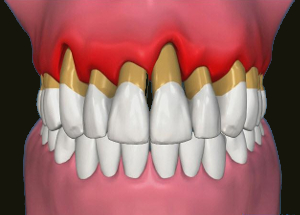 Bone Saving They would greatly adapt to your jawbone, eliminating risks of bone loss and gum recession. They are placed with crown, bridge or denture with best osseointegration; providing you with the dynamic teeth structure that no one can make out that you have replaced your teeth. With separate bridge or denture, it may completely go reversed!
Bone Saving They would greatly adapt to your jawbone, eliminating risks of bone loss and gum recession. They are placed with crown, bridge or denture with best osseointegration; providing you with the dynamic teeth structure that no one can make out that you have replaced your teeth. With separate bridge or denture, it may completely go reversed! Tooth Saving Dental implants surgery unlike bridges would never harm adjoining teeth structure when placed; instead would provide the best support to your teeth and bones. There is no additional anchoring required for teeth to get implanted; dissimilar to bridges where adjacent teeth will act as an anchor for teeth to get bridged; requiring filing and polishing and therefore, possibly a wear and tear.
Tooth Saving Dental implants surgery unlike bridges would never harm adjoining teeth structure when placed; instead would provide the best support to your teeth and bones. There is no additional anchoring required for teeth to get implanted; dissimilar to bridges where adjacent teeth will act as an anchor for teeth to get bridged; requiring filing and polishing and therefore, possibly a wear and tear.Am I a Candidate for Dental Implants Treatments?
 The right candidacy of implants will rely upon your general and oral health. Mainly, it is your jawbone that needs to be adequately present to support the implant. You should also be with your healthy gums; free from gum disease. Consulting your dentist will exactly tell you what to do and how. Get a dental appointment to know your best candidacy. The dental implants India consultation offers the best dentistry solutions. At present, the world is also benefiting the best and most affordable services from dental implants surgeons in India.
The right candidacy of implants will rely upon your general and oral health. Mainly, it is your jawbone that needs to be adequately present to support the implant. You should also be with your healthy gums; free from gum disease. Consulting your dentist will exactly tell you what to do and how. Get a dental appointment to know your best candidacy. The dental implants India consultation offers the best dentistry solutions. At present, the world is also benefiting the best and most affordable services from dental implants surgeons in India.Dental Implants Treatment Options for:
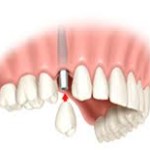 Single Tooth Replacement If you have a single tooth missing or damaged, you will require only one implant placed with a crown. It is more like a natural tooth and root.
Single Tooth Replacement If you have a single tooth missing or damaged, you will require only one implant placed with a crown. It is more like a natural tooth and root.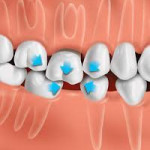 Several Teeth Replacement If you have many missing or damaged teeth, you will require the implant-supported bridges for replacement. Again, you will get your missing teeth replaced with several teeth and necessary roots.
Several Teeth Replacement If you have many missing or damaged teeth, you will require the implant-supported bridges for replacement. Again, you will get your missing teeth replaced with several teeth and necessary roots.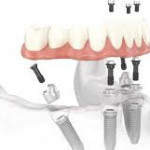 All Teeth Replacement If you have all your teeth missing, the tooth implant-supported full bridge, mainly the full denture will be a perfect solution. They fixed in place of all your missing teeth would seem just similar to your original teeth and roots.
All Teeth Replacement If you have all your teeth missing, the tooth implant-supported full bridge, mainly the full denture will be a perfect solution. They fixed in place of all your missing teeth would seem just similar to your original teeth and roots.Dental Implants Recovery
What Can I Expect After Treatment? Teeth Implants would clearly work the same as your original teeth. They require similar care that you would seek from your natural teeth. Oral hygiene and regular dental visits are essentials to keep your implants clean and plaque-free. Appropriate teeth cleaning techniques and flossing will keep your implants in healthy states. Post-treatment, the periodic implant checkups are scheduled to see if your teeth, gums are doing well; ensuring that you remain in better oral health. NobelDirect implants offer great simplicity and are highly integrated with soft tissues. The implants are strong composites of single piece titanium that includes both implant body and an integral fixed abutment. Patients are comfortable due to a less-invasive procedure; typically, attributed to its one-piece design that makes the surgery flapless. NobelDirect does also take little surgical time compared to historical implants. Owing to improved treatment protocols and an excellent surface of implants (TiUnite), they have the fastest recovery time. The Immediate Function procedure is a great clinical ease to both dentists and patients; making implants act like purely original, adding immediate relief and great quality to life.
Minimum Discomfort Patients experience very little discomfort – especially, during flapless procedure that is short, non-traumatic and with minimum of postoperative reactions.
Reduced Chair Time The one-stage procedure reduces procedure time, eliminating patient’s multiple re-visits, additional expenses and discomfort.
Immediate Function Great aesthetic dental restoration with immediate gratification.
Reduced Bone Loss The osseo-conductive implant surface and an immediate function protocol would remove risks of bone loss, mainly at alveolar crest.
Types of Dental Implants
 We are using the following Dental Implants and Crowns at Dr. Bhalla’s Multispecialty Dental Clinic. Dr. Bhalla is a highly trained professional by Nobel Biocare and officially allowed to deal with a diverse range of implants that Nobel Biocare provides – adapting to all indications that you will click with and ultimate designs to deliver pretty attractive Teeth.
We are using the following Dental Implants and Crowns at Dr. Bhalla’s Multispecialty Dental Clinic. Dr. Bhalla is a highly trained professional by Nobel Biocare and officially allowed to deal with a diverse range of implants that Nobel Biocare provides – adapting to all indications that you will click with and ultimate designs to deliver pretty attractive Teeth.
 TiUnite A very special implant surface offering an optimal soft tissue integration and osseointegration.
TiUnite A very special implant surface offering an optimal soft tissue integration and osseointegration.
 Groovy The latest and unique groove system provides all implants – a great effectiveness.
Groovy The latest and unique groove system provides all implants – a great effectiveness. Immediate Function This enables the patients to leave the clinic immediately after implant placement – along with new teeth; enhancing back your ability to eat, drink and smile. The dental implants India in quality are just exceptional!
Immediate Function This enables the patients to leave the clinic immediately after implant placement – along with new teeth; enhancing back your ability to eat, drink and smile. The dental implants India in quality are just exceptional!Dental Implant Restoration Types
 Single Tooth Missing With modern dentistry, there are truly a great patterns of implant systems, models and ranges available; serving various patients with their individualized needs. A single-tooth implant restoration includes three parts – an implant post to replace tooth root – an abutment to support the prosthetic crown itself – and the crown to be either cemented onto an abutment or held with a screw in a place.
Single Tooth Missing With modern dentistry, there are truly a great patterns of implant systems, models and ranges available; serving various patients with their individualized needs. A single-tooth implant restoration includes three parts – an implant post to replace tooth root – an abutment to support the prosthetic crown itself – and the crown to be either cemented onto an abutment or held with a screw in a place.
 Multiple Tooth Missing If, you are with multiple teeth missing at various parts of your mouth, the single tooth implant fixed at several places are better option. If, one has multiple teeth missing at the same parts of your mouth, fewer dental implants fixed with the bridges are the most approachable option – A separate tooth along with the newest and strongest root, offering the great stability and no harm to adjacent teeth structure (unlike traditional dental bridges).
Multiple Tooth Missing If, you are with multiple teeth missing at various parts of your mouth, the single tooth implant fixed at several places are better option. If, one has multiple teeth missing at the same parts of your mouth, fewer dental implants fixed with the bridges are the most approachable option – A separate tooth along with the newest and strongest root, offering the great stability and no harm to adjacent teeth structure (unlike traditional dental bridges).
 All Teeth Missing If, you are with total of your teeth missing (requiring replacement of them all), you will basically need two types of full arch implant reconstructions options: 1. Fixed bridges anchored to dental implants 2. Implant supported dentures
All Teeth Missing If, you are with total of your teeth missing (requiring replacement of them all), you will basically need two types of full arch implant reconstructions options: 1. Fixed bridges anchored to dental implants 2. Implant supported dentures
Fixed Bridges anchored to Dental Implants It will replace a full jaw with dental implants along with a bridge fixed over them; thereby resulting in permanent and stable teeth structure and functions.
Implant Supported Dentures They are the full dentures (overdentures) and partial dentures supported by implants – eliminating risks of them getting slipped off the places. Implants that are screwed in a jaw would provide better attachment for a metal bar; helping to support a removable denture. One can go with their most suitable teeth implants India surgery!
Dental Implants Process
Dental Implant Restoration is truly a great invention of contemporary dentistry – bringing one the most indistinguishable teeth, close to natural ones. It’s a complete structural and functional integration; owing to various implants functions and their strong adherence to living bone (providing better and faster osseointegration). Such osseointegrated implants will take approximately three to six months to properly anchor and heal for the crown to get restored with. If osseointegration does not happen, the implants will just fail.
Preparation for Dental Implants can usually be performed after adolescence period, when one achieves fully grown bones. One with medical conditions like diabetes, cancer or periodontal diseases would require extra treatments prior to going for surgery.
Dental Implant Procedure Overview Initially, the prosthesis placement requires a drilling into the bone – for better fixation of titanium screw and crown within. The “Pivot Hole” (a small-diameter hole) is made at place/s where there are no teeth (edentulous) so as to guide the titanium screw, which will firmly support the dental implants in situ. Equipments of the great industry standards and speed will avoid sort of burning to jawbone; allowing enough time for bone to integrate and grow surrounding the implants and for crowns to be fixed over implants. An immediate loading of mini dental implants is available too.
Advanced Dental Implants It is purely the dentist’s skills and expertise that they would protect the jaw and face structures from any accidental damage – especially while creating a pivot hole and sizing the jawbone. In many cases, the surgical guides are used on the basis of CT scans – while fixing teeth implants. While drilling, the dentist must be careful to avoid any damage to nerves, bone cells and other structures. The dentist will have the implant screws that may be self-tapping; getting them fixed at a precise torque in situ –preventing overloading, overheating or pressurization to surrounding bone. With the pivot hole being drilled onto proper jaw site, it will also broaden up to allow the precise implant screw placement in place. Once fixed, the neighboring tissues are secured over the implant; placing the protective cover screw on top in order to ensure better site healing and osseointegration. Depending on a favorable healing around two to six months later, the implants will be uncovered, allowing an abutment (that would hold the crown or teeth replacement) to attach to them. With an abutment once in place, the dentist will then form the temporary crown; serving as template around that the gums will grow and shape themselves in natural ways. The process is ended when your dentist will replace the temporary crown with a permanent crown.
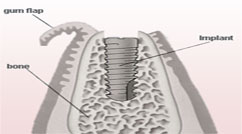 Implant gently Placed into bone
Implant gently Placed into bone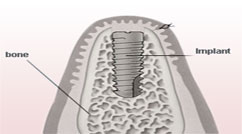 Gum flap closed to allow healing
Gum flap closed to allow healing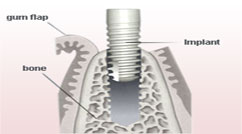 Gum flap raised to expose bone
Gum flap raised to expose bone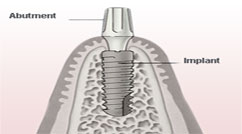
Final crown is fixed onto abutment
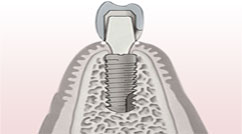
Abutment placed onto implant
